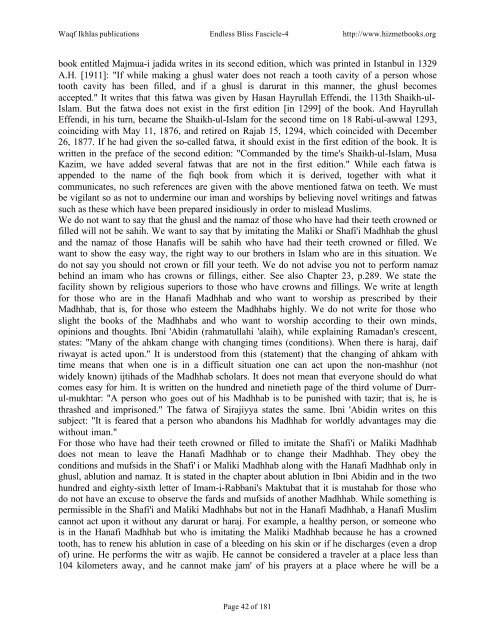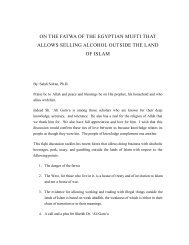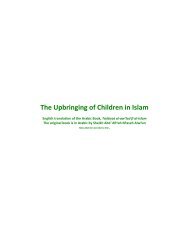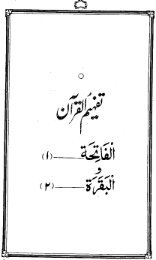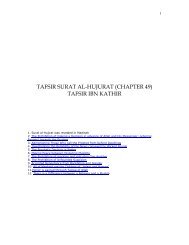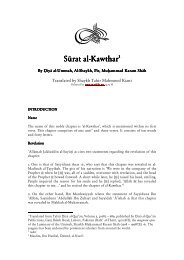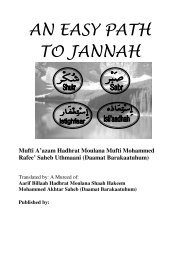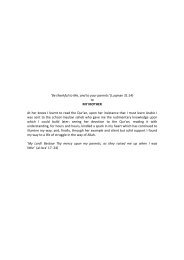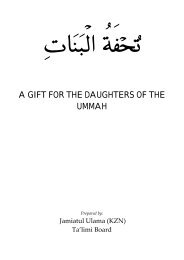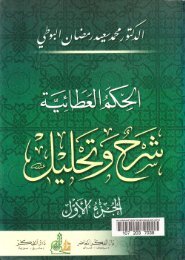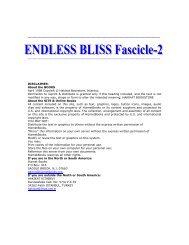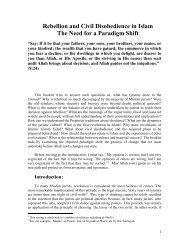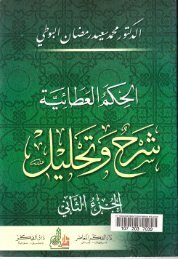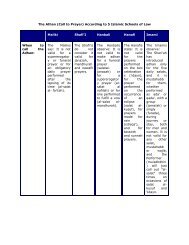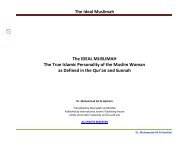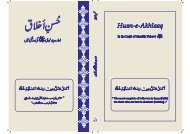ENDLESS BLISS FASCICLE-4
ENDLESS BLISS FASCICLE-4
ENDLESS BLISS FASCICLE-4
You also want an ePaper? Increase the reach of your titles
YUMPU automatically turns print PDFs into web optimized ePapers that Google loves.
Waqf Ikhlas publications Endless Bliss Fascicle-4 http://www.hizmetbooks.org<br />
book entitled Majmua-i jadida writes in its second edition, which was printed in Istanbul in 1329<br />
A.H. [1911]: "If while making a ghusl water does not reach a tooth cavity of a person whose<br />
tooth cavity has been filled, and if a ghusl is darurat in this manner, the ghusl becomes<br />
accepted." It writes that this fatwa was given by Hasan Hayrullah Effendi, the 113th Shaikh-ul-<br />
Islam. But the fatwa does not exist in the first edition [in 1299] of the book. And Hayrullah<br />
Effendi, in his turn, became the Shaikh-ul-Islam for the second time on 18 Rabi-ul-awwal 1293,<br />
coinciding with May 11, 1876, and retired on Rajab 15, 1294, which coincided with December<br />
26, 1877. If he had given the so-called fatwa, it should exist in the first edition of the book. It is<br />
written in the preface of the second edition: "Commanded by the time's Shaikh-ul-Islam, Musa<br />
Kazim, we have added several fatwas that are not in the first edition." While each fatwa is<br />
appended to the name of the fiqh book from which it is derived, together with what it<br />
communicates, no such references are given with the above mentioned fatwa on teeth. We must<br />
be vigilant so as not to undermine our iman and worships by believing novel writings and fatwas<br />
such as these which have been prepared insidiously in order to mislead Muslims.<br />
We do not want to say that the ghusl and the namaz of those who have had their teeth crowned or<br />
filled will not be sahih. We want to say that by imitating the Maliki or Shafi'i Madhhab the ghusl<br />
and the namaz of those Hanafis will be sahih who have had their teeth crowned or filled. We<br />
want to show the easy way, the right way to our brothers in Islam who are in this situation. We<br />
do not say you should not crown or fill your teeth. We do not advise you not to perform namaz<br />
behind an imam who has crowns or fillings, either. See also Chapter 23, p.289. We state the<br />
facility shown by religious superiors to those who have crowns and fillings. We write at length<br />
for those who are in the Hanafi Madhhab and who want to worship as prescribed by their<br />
Madhhab, that is, for those who esteem the Madhhabs highly. We do not write for those who<br />
slight the books of the Madhhabs and who want to worship according to their own minds,<br />
opinions and thoughts. Ibni 'Abidin (rahmatullahi 'alaih), while explaining Ramadan's crescent,<br />
states: "Many of the ahkam change with changing times (conditions). When there is haraj, daif<br />
riwayat is acted upon." It is understood from this (statement) that the changing of ahkam with<br />
time means that when one is in a difficult situation one can act upon the non-mashhur (not<br />
widely known) ijtihads of the Madhhab scholars. It does not mean that everyone should do what<br />
comes easy for him. It is written on the hundred and ninetieth page of the third volume of Durrul-mukhtar:<br />
"A person who goes out of his Madhhab is to be punished with tazir; that is, he is<br />
thrashed and imprisoned." The fatwa of Sirajiyya states the same. Ibni 'Abidin writes on this<br />
subject: "It is feared that a person who abandons his Madhhab for worldly advantages may die<br />
without iman."<br />
For those who have had their teeth crowned or filled to imitate the Shafi'i or Maliki Madhhab<br />
does not mean to leave the Hanafi Madhhab or to change their Madhhab. They obey the<br />
conditions and mufsids in the Shafi' i or Maliki Madhhab along with the Hanafi Madhhab only in<br />
ghusl, ablution and namaz. It is stated in the chapter about ablution in Ibni Abidin and in the two<br />
hundred and eighty-sixth letter of Imam-i-Rabbani's Maktubat that it is mustahab for those who<br />
do not have an excuse to observe the fards and mufsids of another Madhhab. While something is<br />
permissible in the Shafi'i and Maliki Madhhabs but not in the Hanafi Madhhab, a Hanafi Muslim<br />
cannot act upon it without any darurat or haraj. For example, a healthy person, or someone who<br />
is in the Hanafi Madhhab but who is imitating the Maliki Madhhab because he has a crowned<br />
tooth, has to renew his ablution in case of a bleeding on his skin or if he discharges (even a drop<br />
of) urine. He performs the witr as wajib. He cannot be considered a traveler at a place less than<br />
104 kilometers away, and he cannot make jam' of his prayers at a place where he will be a<br />
Page 42 of 181


